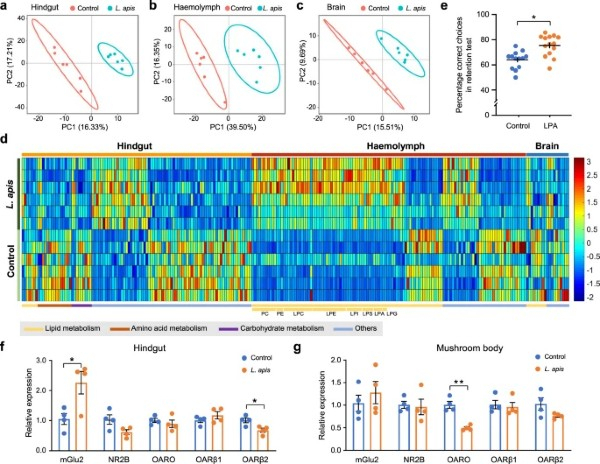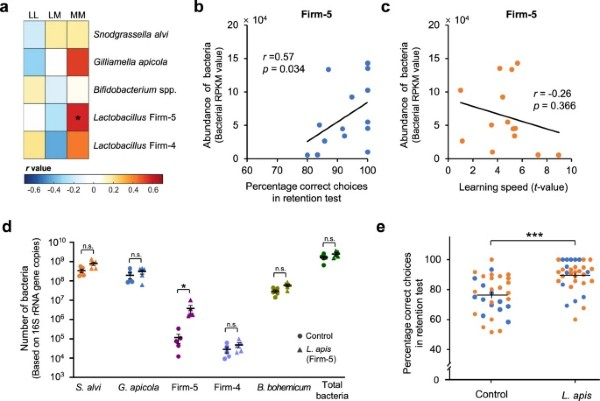Recently, a study showed that a gut bacteria named Lactobacillus Apis boosts memory and cognitive ability in bumblebees. This study was conducted by a team of researchers from the Queen Mary University of London and the University of Oulu, Finland, and scientists from Jiangnan University, China. The study also revealed that bumblebees with more gut bacteria in their stomach have a better memory than those who have less of it.
Another thing discovered in this gut-brain linked study was that bumblebees consuming more of this bacteria showed lasting memory than bees who ate routine foods. These proven findings are based on the test conducted and studied by the scientists and researchers. They have left bumblebees in closed environs with ten multi-colored artificial flowers. Five of the colourful flowers tasted sweet due to the addition of sucrose solution, while the rest were bitter due to the mix of quintine solution.

The researchers kept an eye on these bumblebees to see how well they could recall the sweet flowers. The research experts then compared the samples individually with different bacteria present in the bumblebees' gut. Also, these experts have stored these bees in the hive for three days to check whether they could hold the information in their memory or not, perpetually.
In addition to the above test, the researchers added gut bacteria into bumblebees' diet to see how many Lactobacillus apis were responsible for their enhanced memory variations. Bumblebees have a limited number of gut microorganisms, which makes them a proper prototype to explore, research, and compare their cognitive differences with other individuals.
Dr. Li Li, postdoctoral Researcher at Jiangnan University and lead author of this research study stated that, "Our results suggest not only that the natural variation in the amount of a specific gut bacterium effects memory, but also show a causal link – that by adding the same bacterial species to a bee's diet can enhance their memories. Further research will be required to determine if and which bacteria species might have the same effect in humans. But our work has shone a bright light on this possibility."

Furthermore, scientists said that the differences in the microorganisms across the bumblebees occur due to variations in the nest environment, activities, pathogens, social interactions, and pollination environment. They also stated that bumblebees having improved memory could shape themselves well, and boost fitness levels on their own. These kinds of bees should be able to live longer because they can get food for themselves as well as for the colony. Virgin queens consuming the deposited bacteria, pass the same on to the upcoming bumblebees generation.
Professor Wei Zhao, Head of the Enzymology lab at Jiangnan University and corresponding author of this research study stated that, "It's amazing to find out the specific memory-enhancing bacteria species. The results further validate our belief that we may improve our cognitive ability via the regulation of gut microbiota."









